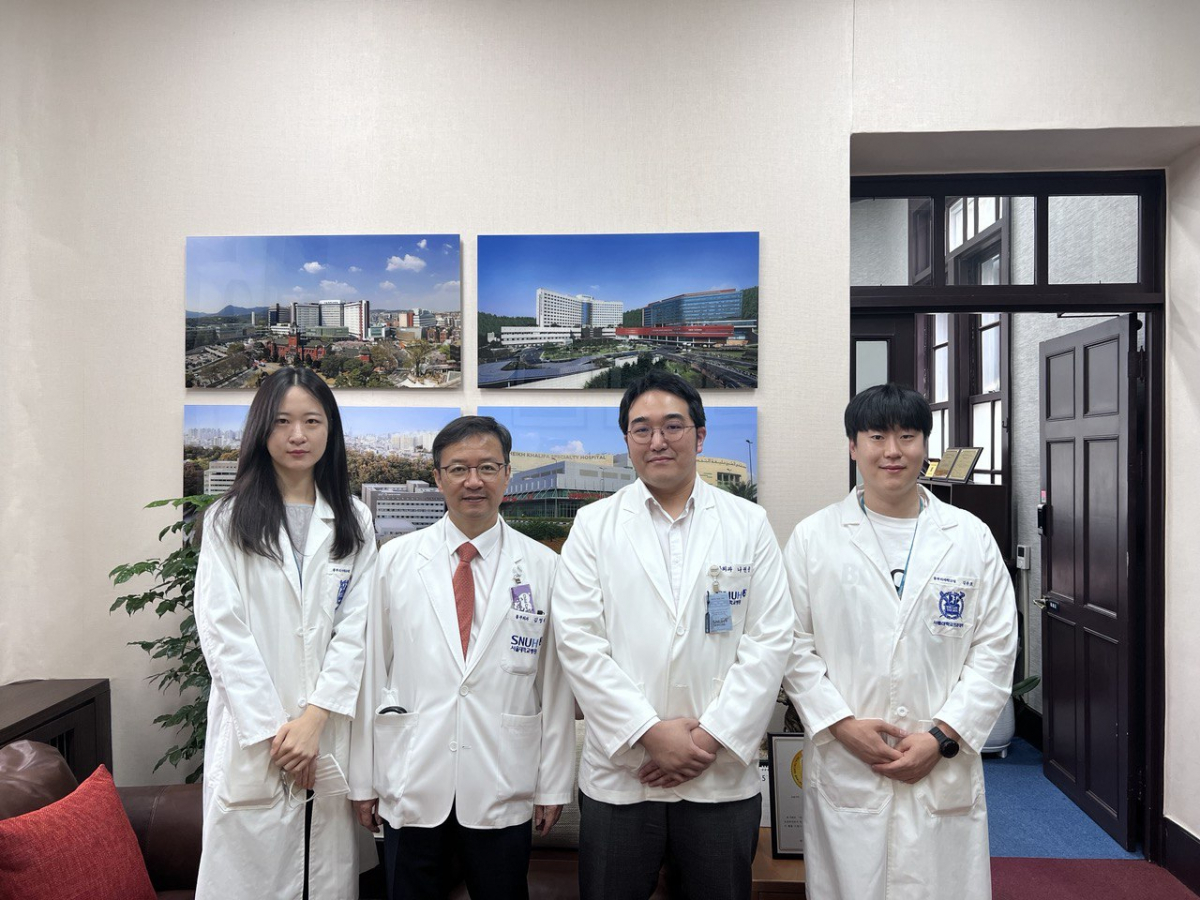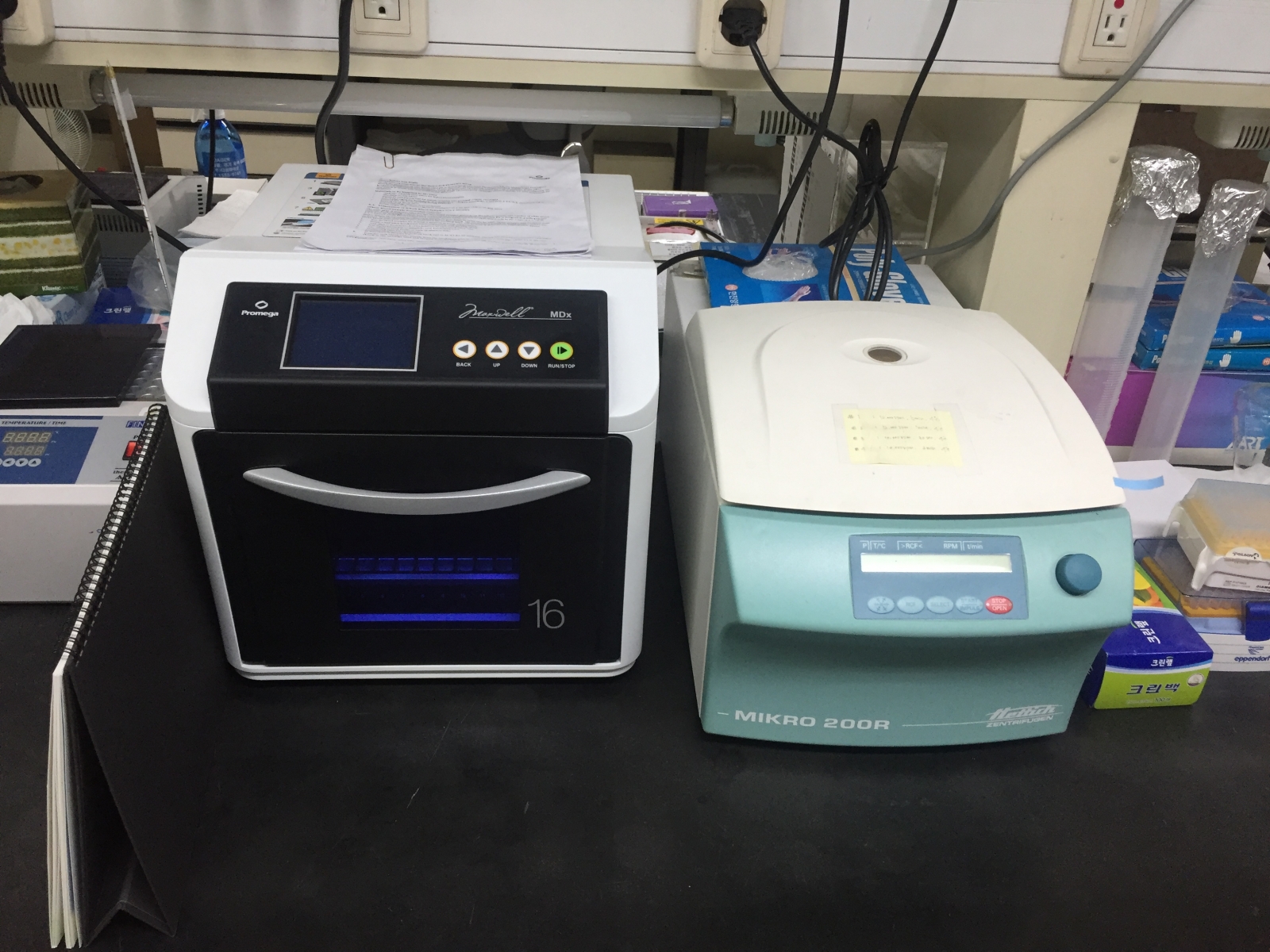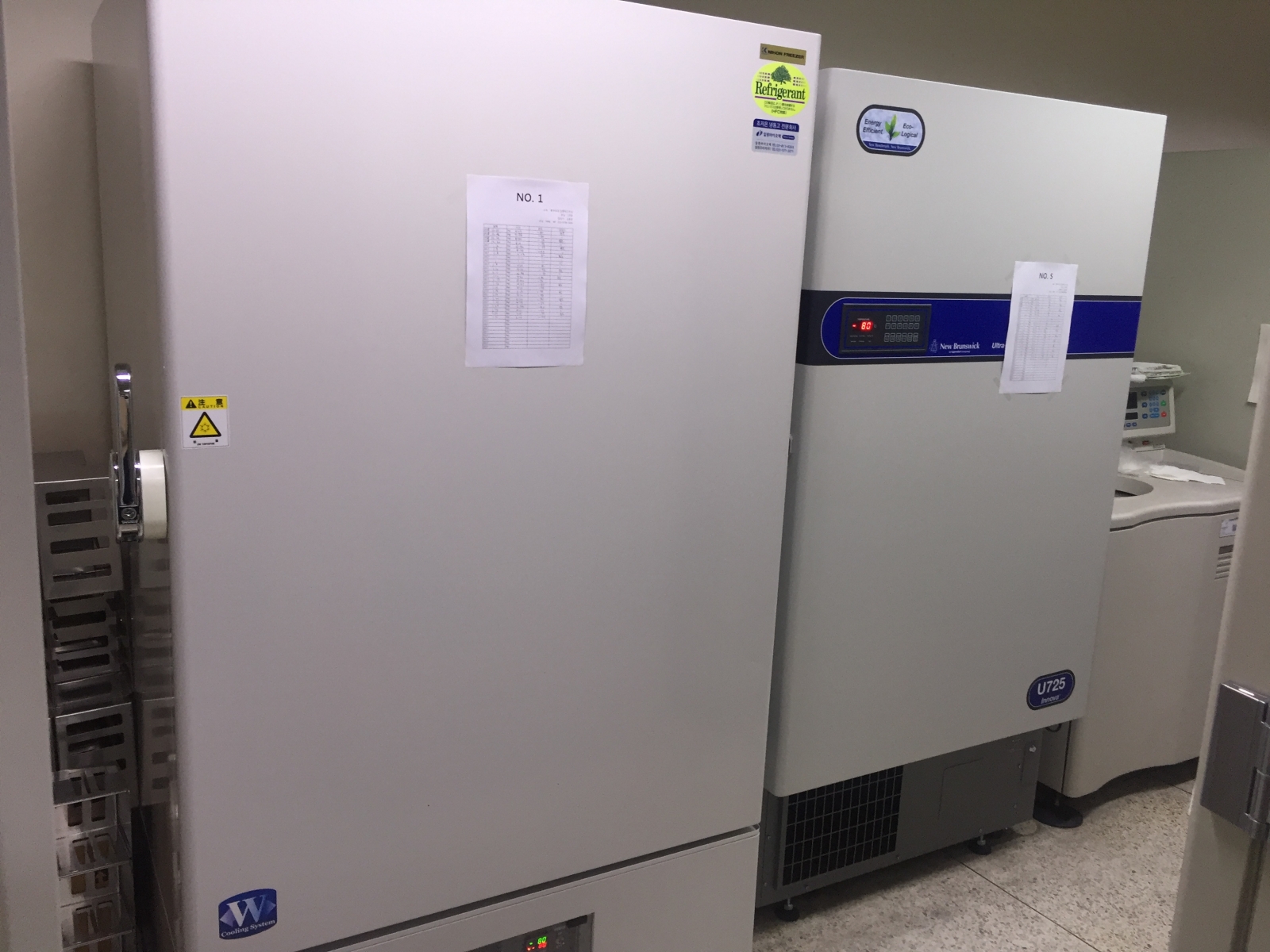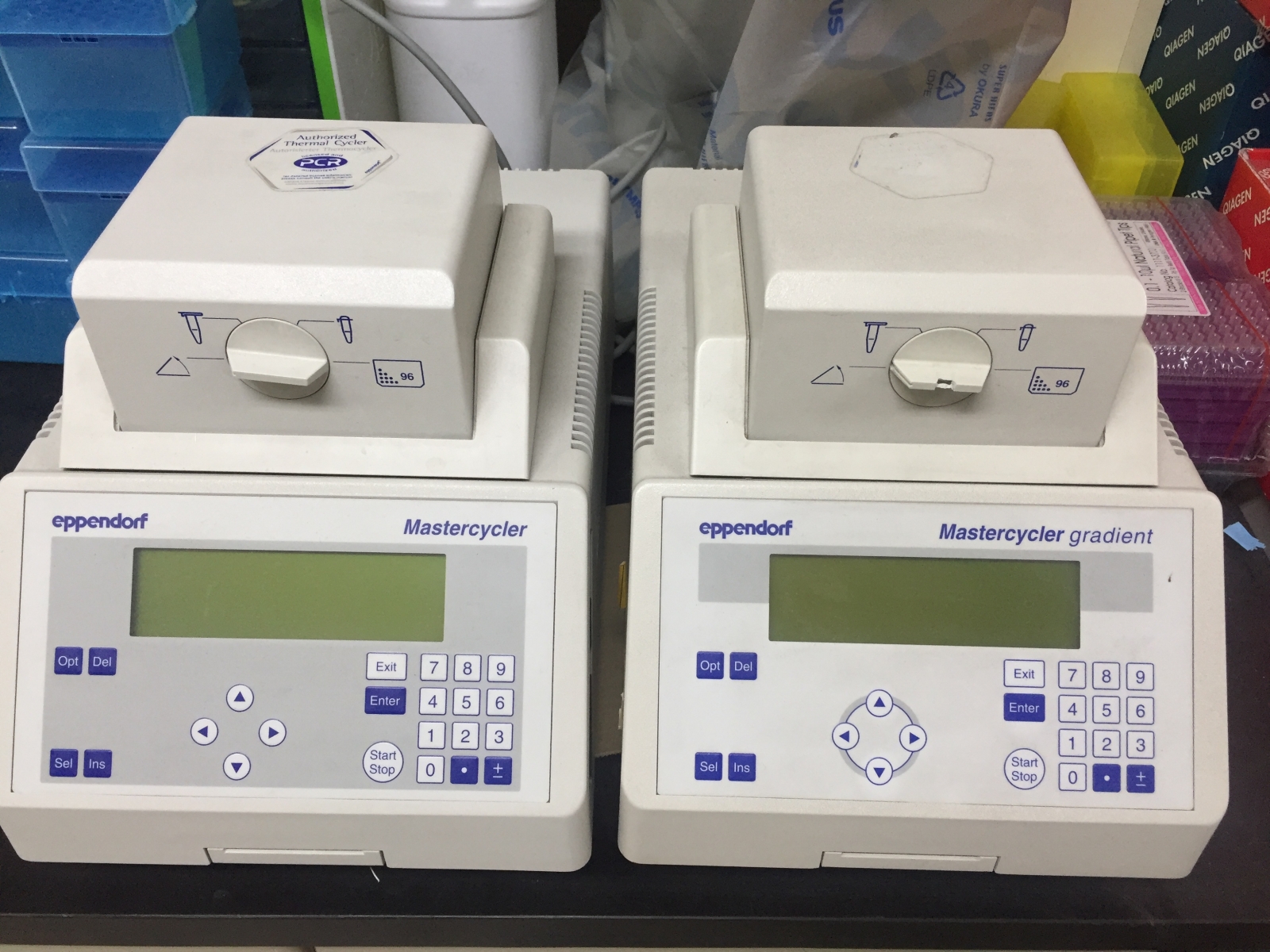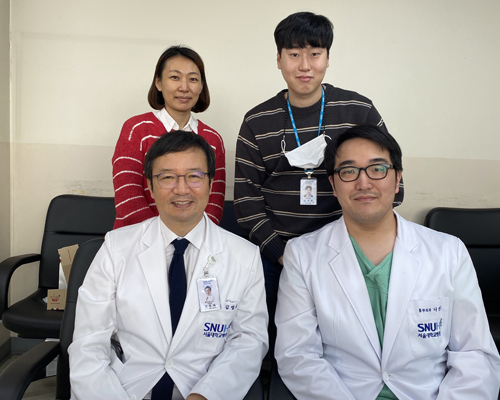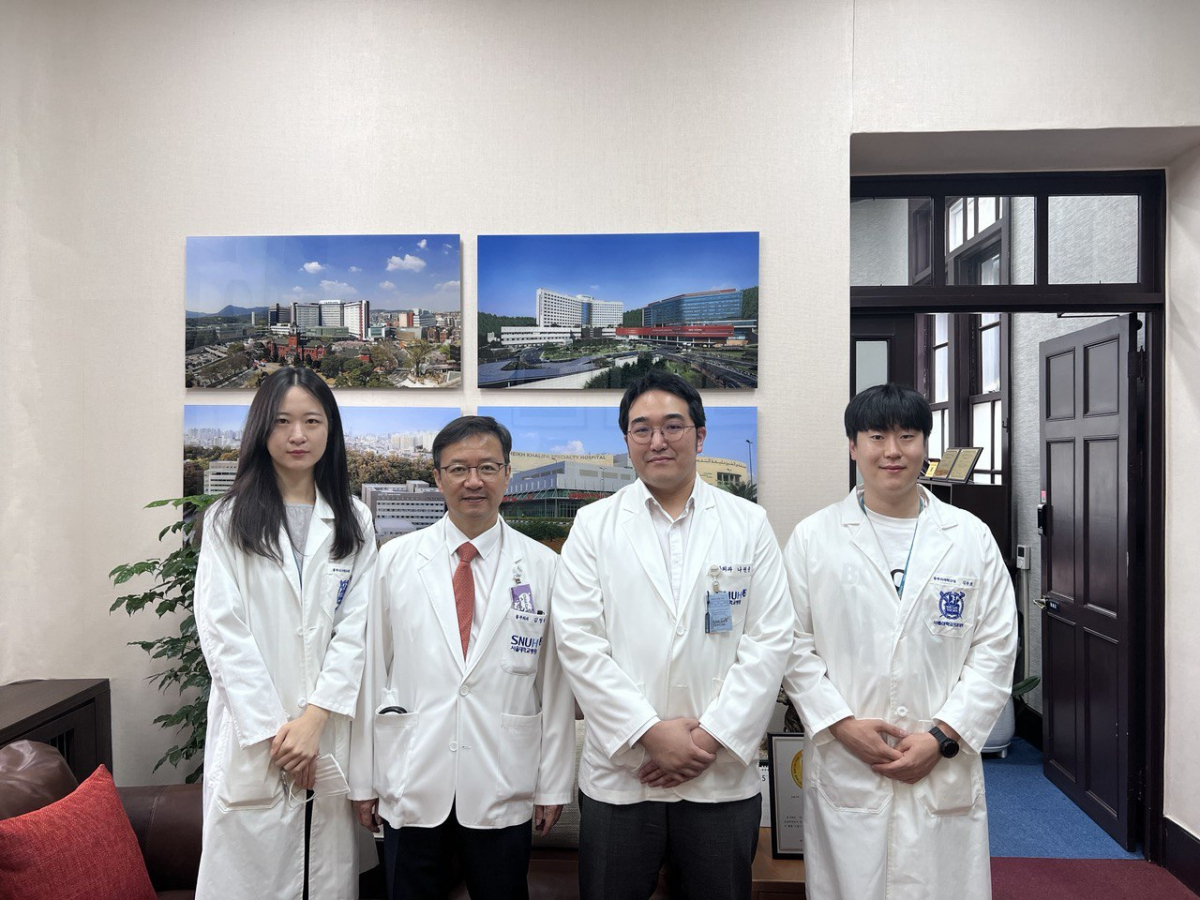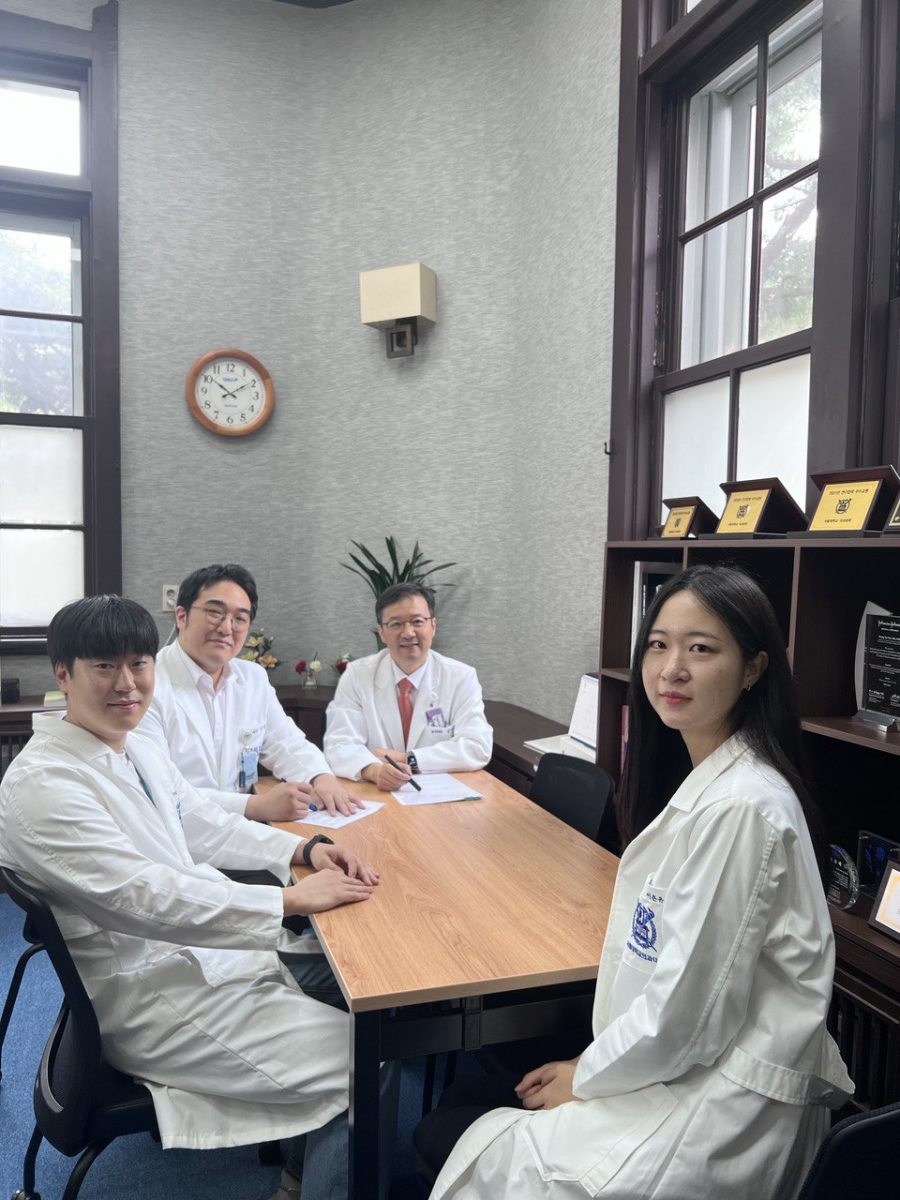
Overview
Laboratory Introduction
Laboratory of Thoracic Surgical Oncology
Laboratory of Thoracic Surgical Oncology
Established in 2000, two professors and three researchers currently run our laboratory. The research goal of our laboratory is to explore cancer biology using several spectrums of laboratory platforms, including 1) next-generation sequencing of cancer tissue genomes or transcriptomes obtained from patients’ driven tissues to discover novel cancer driver genes 2) development of lung cancer panels available for clinical service in Seoul National University Hospital to facilitate tailored cancer treatment, 3) establishment of lung and lung cancer organoids and analysis of spatial transcriptomes to investigate tumor microenvironment.
Related Researcher
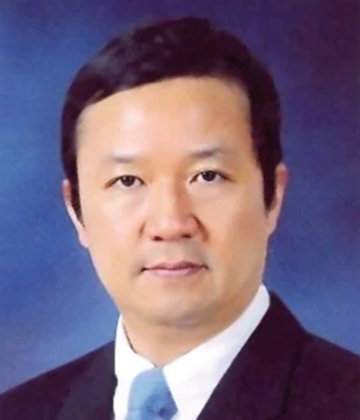
Young Tae Kim Professor
- Email : ytkim@snu.ac.kr
Research topics
Our laboratory has been performing various researches to discover etiology, make an early diagnosis, decide the best clinical management, and predict the prognosis of thoracic malignant disease. For that, we established a thoracic cancer tissue repository including lung cancer, esophageal cancer, and thymoma. Our research consists of three major platforms: 1. Exploration of new driver mutations in thoracic malignancies 2. The development of cancer panels 3. The establishment of organoids and analysis of spatial transcriptomes We have previously conducted whole-transcriptome and whole-exome sequencing of adenocarcinoma of the lung and discovered novel gene fusion of KIF5B-RET for the first time in the world. Subsequently, we developed a FISH probe to diagnose KIF5B-RET gene fusion and validated its function in the clinical setting. By analyzing many fusion gene cancer genomes, we investigated the mechanism of fusion gene generation. We found that the majority of fusion gene was generated by complex rearrangement process. Interestingly, those oncogenic gene fusions seemed to occur several decades before the diagnosis of lung cancer. Those discoveries were published on the Cell. We previously analyzed whole transcriptome sequencing results of squamous cell carcinoma and adenocarcinoma of the lung and found they clustered according to the stromal immune profiles. Such findings drove us to investigate the genomic characteristics further to predict immune checkpoint inhibitors. We performed NGS analyses of the genome and transcriptome of the tissue obtained from the patients whose responsiveness to the immune checkpoint inhibitors was known. To establish tailored treatment platforms according to the genomic alteration of cancer, we developed a lung cancer panel that is currently on clinical service in Seoul National University Hospital. We have been working on establishing a lung organoid protocol. Meanwhile, the COVID-19 pandemic took place, and we conducted an exposure study of lung organoids to the coronavirus (SARS-CoV-2). We discovered the mechanism of viral invasion to the lung alveolar cells, its replication characteristics resulting in cellular loss of function. The result was published in Cell Stem Cell. Globally, we participated in an international research consortium of female non-smoking lung cancer and conducted various GWAS studies. Recently we started to collaborate with NCI in the States to conduct another GWAS study of lung cancer. Hopefully, with our research, we can establish the best treatment algorithm for the improved long-term survival of patients who are suffering from thoracic malignant disease.
Research goals
The purpose of our laboratory is to establish research platforms to discover novel driver mutations by in-depth analysis of Korean thoracic malignant tumor tissue genomes and transcriptomes.
Research achievements
- Jeonghwan Youk, Taewoo Kim, Kelly V Evans, Young-Il Jeong, Yongsuk Hur, Seon Pyo Hong, Je Hyoung Kim, Kijong Yi, Su Yeon Kim, Kwon Joong Na, Thomas Bleazard, Ho Min Kim, Mick Fellows, Krishnaa T Mahbubani, Kourosh Saeb-Parsy, Seon Young Kim, Young Tae Kim, Gou Young Koh, Byeong-Sun Choi, Young Seok Ju, Joo-Hyeon Lee. Three-Dimensional Human Alveolar Stem Cell Culture Models Reveal Infection Response to SARS-CoV-2. Cell Stem Cell. 2020 Oct 21;S1934-5909(20)30498-7
- Sun-Wha Im, Jeesoo Chae, Se Song Jang, Jaeyong Choi, Jihui Yun, Soojin Cha, Nak-Jung Kwon, Yoon Kyung Jeon, Yoohwa Hwang, Miso Kim, Tae Min Kim, Dong-Wan Kim, Jong-Il Kim, Young Tae Kim A newly developed capture-based sequencing panel for genomic assay of lung cancer. Genes Genomics. 2020 Jul;42(7):751-759.
- Kwon Joong Na, Hongyoon Choi, Ho Rim Oh, Yoon Ho Kim, Sae Bom Lee, Yoo Jin Jung, Jaemoon Koh, et al. Reciprocal change in Glucose metabolism of Cancer and Immune Cells mediated by different Glucose Transporters predicts Immunotherapy response. Theranostics. 2020 Jul 25;10(21):9579-9590.
- Hee-Jin Jang, Hyun-Sung Lee, Daniela Ramos, In Kyu Park, Chang Hyun Kang, Bryan M Burt, Young Tae Kim. Transcriptome-based molecular subtyping of non-small cell lung cancer may predict response to immune checkpoint inhibitors. J Thorac Cardiovasc Surg. 2020 Apr;159(4):1598-1610.e3.
- Lee JJ, Park S, Park H, Kim S, Lee J, Lee J, Youk J, Yi K, An Y, Park IK, Kang CH, Chung DH, Kim TM, Jeon YK, Hong D, Park PJ, Ju YS, Kim YT. Tracing Oncogene Rearrangements in the Mutational History of Lung Adenocarcinoma. Cell. 2019 Jun 13;177(7):1842-1857.e21.
- Jeong-Sun Seo, Ahreum Kim, Jong-Yeon Shin, Young Tae Kim. Comprehensive analysis of the tumor immune micro-environment in non-small cell lung cancer for efficacy of checkpoint inhibitor. Sci Rep. 2018 Oct 1;8(1):14576.
- Jeong-Sun Seo, Ji Won Lee, Ahreum Kim, Jong-Yeon Shin, Yoo Jin Jung, Sae Bom Lee, Yoon Ho Kim, Samina Park, Hyun Joo Lee, In-Kyu Park, Chang-Hyun Kang, Ji-Young Yun, Jihye Kim and Young Tae Kim. Whole Exome and Transcriptome Analyses Integrated with Microenvironmental Immune Signatures of Lung Squamous Cell Carcinoma. Cancer Immunol Res. 2018 Jul;6(7):848-859.
- Seow WJ, Matsuo K, Hsiung CA, Shiraishi K, Song M, Kim HN, Wong MP, Hong YC, et al. Association between GWAS-identified lung adenocarcinoma susceptibility loci and EGFR mutations in never-smoking Asian women, and comparison with findings from Western populations. Hum Mol Genet. 2017 Jan 15;26(2):454-465.
- Wang Z, Seow WJ, Shiraishi K, Hsiung CA, Matsuo K, Liu J, Chen K, Yamji T, et al. Meta- analysis of genome-wide association studies identifies multiple lung cancer susceptibility loci in never-smoking Asian women. Hum Mol Genet. 2016 Feb 1; 25(3):620-9.
- Machiela MJ, Zhou W, Karlins E, Sampson JN, Freedman ND, Yang Q, Hicks B, Dagnall C, et al. Female chromosome X mosaicism is age-related and preferentially affects the inactivated X chromosome. Nat Commun. 2016 Jun 13; 7:11843.

